-
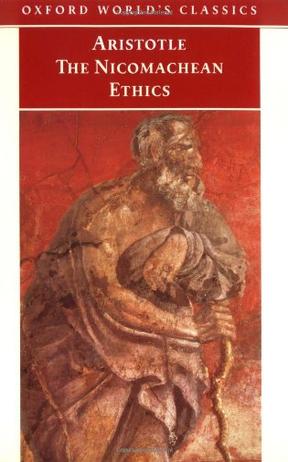
The Nicomachean Ethics
-
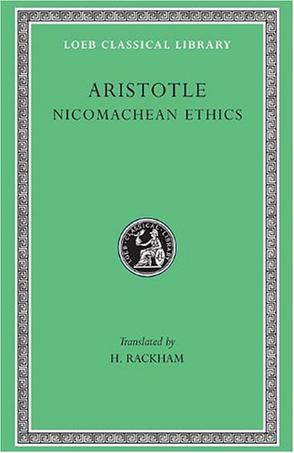
Nicomachean Ethics
Aristotle's Politics is a key document in Western political thought. In these first two books Aristotle shows his complete mastery of political theory and practice, and raises many crucial issues still with us today. In Book I he argues vigorously for a political theory based on 'nature'. By nature, man is a 'political animal', one naturally fitted for life in a polis or state. Some people, however, are natural slaves; and women are by nature subordinate to men. Acquisition and exchange are natural, but not trading for profit. In Book II he launches a sharp attack on Plato's two 'utopias', the Republic and the Laws, and also criticizes three historical states reputed to be well governed: Sparta, Crete, and Carthage. This volume contains a close translation of these two books, together with a philosophical commentary. It is well suited to the requirements of readers who do not know Greek. -
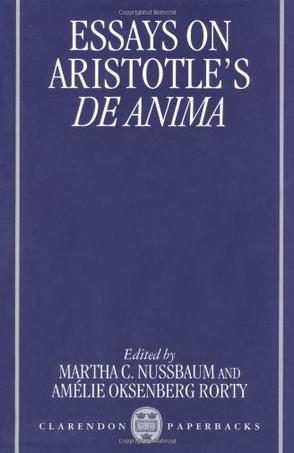
Essays on Aristotle's De Anima
Aristotle's philosophy of mind has recently attracted renewed attention and respect from philosophers. This volume brings together outstanding new essays on De Anima by a distinguished international group of contributors including, in this paperback edition, a new essay by Myles Burnyeat. The essays form a running commentary on the work, covering such topics as the relation between body and soul, sense-perception, imagination, memory, desire, and thought. the authors, writing with philosophical subtlety and wide-ranging scholarship, present the philosophical substance of Aristotle's views to the modern reader. They locate their interpretations firmly within the context of Aristotle's thought as a whole. -
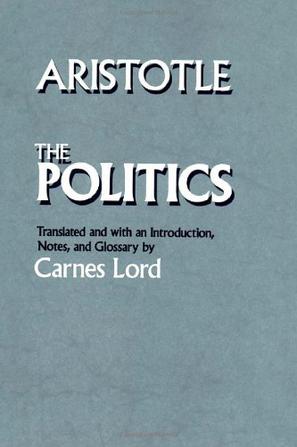
The Politics
From Library Journal The past few years have seen a spate of new translations of classic texts in philosophy, in part because of more complete texts on which to base the translations and in part because of a desire to render the texts in a more contemporary English. Simpson (classics and philosophy, CUNY) has produced a fresh and lively translation that is perhaps more logically ordered. He makes a strong case for rearranging the standard order of the books of the Politics to provide a sequence more in keeping with Aristotle's intentions, positioning Books 7 and 8 to follow Book 3. The text begins with a translation of Book 10, Chapter 9 of the Nicomachean Ethics, which Simpson argues is a precursor to the Politics. A comparison with standard translations, such as those of Jowett and Barker, indicates that Simpson put much effort into this version and clarified a number of points that earlier translations left unclear. An excellent addition to all academic and major public libraries.?Terry C. Skeats, Bishop's Univ. Lib., Lennoxville, Quebec Copyright 1997 Reed Business Information, Inc. --This text refers to an out of print or unavailable edition of this title. Review This is an admirable translation, meticulous in its attention to Aristotle's Greek and judicious in its phrasing and choice of terms. It should prove invaluable to beginning students and scholars alike. -- Richard Kraut, Northwestern University --This text refers to the Paperback edition. -
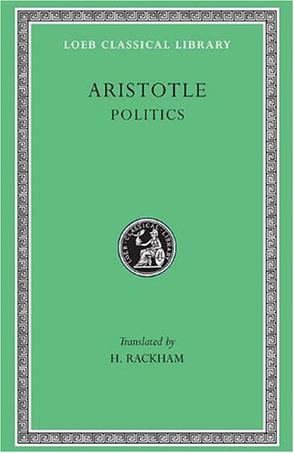
Politics
Nearly all the works Aristotle prepared for publication are lost; the priceless ones extant are lecture-materials, notes, and memoranda (some are spurious). They can be categorized as follows: I Practical: Nicomachean Ethics; Great Ethics (Magna Moralia); Eudemian Ethics; Politics; Economics (on the good of the family); On Virtues and Vices. II Logical: Categories; Analytics (Prior and Posterior); Interpretation; Refutations used by Sophists; Topica. III Physical: Twenty-six works (some suspect) including astronomy, generation and destruction, the senses, memory, sleep, dreams, life, facts about animals, etc. IV Metaphysics: on being as being. V Art: Rhetoric and Poetics. VI Other works including the Constitution of Athens; more works also of doubtful authorship. VII Fragments of various works such as dialogues on philosophy and literature; and of treatises on rhetoric, politics and metaphysics. The Loeb Classical Library edition of Aristotle is in twenty-three volumes. -
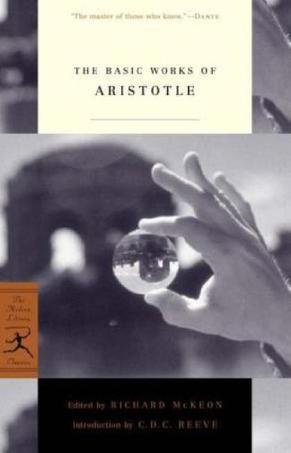
The Basic Works of Aristotle
Preserved by Arabic mathematicians and canonized by Christian scholars, Aristotle’s works have shaped Western thought, science, and religion for nearly two thousand years. Richard McKeon’s The Basic Works of Aristotle –constituted out of the definitive Oxford translation and in print as a Random House hardcover for sixty years–has long been considered the best available one-volume Aristotle. Appearing in paperback at long last, this edition includes selections from the Organon, On the Heavens, The Short Physical Treatises, Rhetoric, among others, and On the Soul, On Generation and Corruption, Physics, Metaphysics, Nicomachean Ethics, Politics, and Poetics in their entirety.